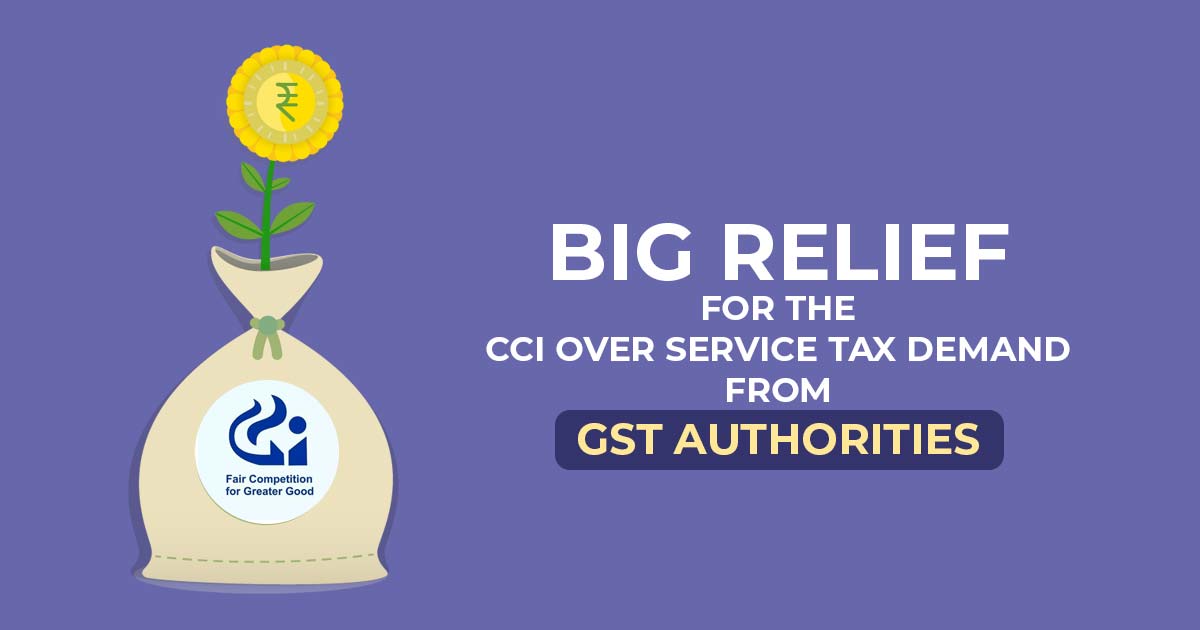
The Competition Commission of India received a welcome relief as GST authorities dropped a demand for ₹7.08 crore in service tax. The ruling clarified that the regulator isn’t required to register for service tax, negating any liability for the tax.
The breakdown of the ₹7.08 crore demand includes ₹6.78 crore for service tax, along with education cess, secondary and higher secondary education cess, Swach Bharat cess, and Krishi Kalyan cess.
This decision stemmed from a CGST Commissioner audit following an appeal by the CCI against a show cause notice issued by the Directorate General of GST Intelligence (DGGI), Delhi Zone.
Back in 2020, the DGGI issued the notice based on an “intelligence report alleging that the CCI hadn’t paid service tax on the fees received while providing services to different individuals.
Following an appeal from the CCI, the Commissioner of CGST and Central Excise, Delhi Audit-1, has now determined that the competition watchdog is an entity formed by an Act of Parliament, and its financial records undergo auditing by the CAG.
The order stated that the CCI isn’t obliged to register for service tax, therefore no service tax demand exists. Consequently, penalties aren’t applicable when the entire demand is deemed unsustainable, following established legal principles.
Further, the recent order highlighted that as the Competition Commission of India is established by an Act of Parliament and subject to CAG audits, it doesn’t engage in providing taxable services. Hence, liabilities related to non-filing of returns or interest don’t arise due to the absence of sustained service tax demands.
Earlier, CCI had asserted its role as an authoritative enforcement body overseeing the Competition Act, emphasizing that its proceedings are statutory, resembling a tribunal rather than constituting commercial economic activities. It underscored that its functions align more with tribunal-like activities rather than commerce.
Read Also:- Demand Notices to Sectors by GST Authorities Raise Questions
Another argument presented was that the filing serves solely for statutory assessment and enforcement, falling outside the purview of taxation statutes. Hence, it was contended that filing fees shouldn’t be subject to service tax.
Additionally, CCI highlighted that in all international jurisdictions, merger notifications are filed with a fee, and none of these jurisdictions levy service tax on such fees.









